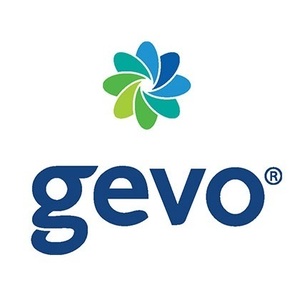Gevo, Sweetwater Energy sign feedstock MOU

November 17, 2021
BY Gevo Inc.
Gevo Inc. is pleased to announce it has signed a memorandum of understanding (MOU) with Sweetwater Energy Inc., regarding the use of sustainably sourced agricultural residues and woody biomass as a feedstock for producing cellulosic alcohols and energy-dense renewable liquid hydrocarbons.
As outlined in the MOU, Sweetwater plans to build, own and operate a facility adjacent to Gevo’s existing plant in Luverne, Minnesota, to produce high-value, plant-based products from cellulose and lignin while supplying Gevo with up to 30,000 tons of biomass-derived cellulosic sugars annually, with opportunities for expansion. The new Sweetwater facility would utilize its proprietary Sunburst technology for deconstructing lignocellulosic biomass. Sweetwater’s anticipated plant-based product portfolio, derived from cellulose and lignin, is targeted for applications in packaging, resins, and other applications to increase performance and sustainability, while displacing petroleum-based products. Gevo plans to use the offtake of the low-cost, cellulosic sugars co-produced by Sweetwater for the anticipated production of cellulosic alcohols and renewable hydrocarbons.
“We’re very excited to work with Gevo,” says Arunas Chesonis, chairman and CEO of Sweetwater Energy. “This partnership fits perfectly with our goal for the company—replacing petroleum products with renewable solutions at a price point so low that making the right decision for the planet is also the right decision for our customers. This is the beginning of a collaboration that will pay very real dividends for present and future generations.”
Advertisement
Advertisement
Gevo was the first company to demonstrate conversion of cellulosic sugars to make sustainable aviation fuel meeting the ASTM D7566 specification allowing it to be used for commercial flights. The company expects it can be commercialized effectively when cost-effective sources of these sugars meet sustainability goals. In addition, cellulosic D3 RINs are high value and create an opportunity for Gevo to leverage its Luverne plant with anticipated better returns to make higher value products that are in demand in the marketplace.
The potential partnership with Sweetwater to supply cellulosic sugars provides an exciting model for Gevo. Because this offtake model could be replicated globally in multiple locations to fill a gap in the marketplace, it could further expand the reach of Gevo’s systems approach to sustainability, while allowing the company to stay focused on its technology for the production of alcohols and hydrocarbon fuels. Developing new partnerships for the conversion of cellulosic biomass is expected to continue to be a part of Gevo’s strategic plan.
Advertisement
Advertisement
Since Sweetwater’s Sunburst technology is designed with the flexibility to pretreat many types of biomass and has been proven in operation at commercial scale at the Sweetwoods Project in Imavere, Estonia, Sweetwater plans to increase the types of feedstock used in the Luverne plant to include qualified wood products and agricultural residues. Construction of the Sweetwater facility adjacent to the Luverne facility is anticipated to begin in Q3 2022.
“Combining forces with Sweetwater is a great way to leverage the best technology and resources from both parties to expand our addressable feedstocks to produce cellulosic alcohols and energy dense hydrocarbon fuels and plant-based products,” says Paul Bloom, chief carbon and innovation officer of Gevo. “Working together we anticipate delivering products to the market faster while decreasing risk throughout the value chain and lowering overall product carbon intensities through a systems approach to decarbonization. This is an important step to expand the portfolio of carbohydrates we intend to process to include cellulosic sugars that represent a huge amount of feedstock globally.”
Related Stories
Calumet Inc. on Aug. 8 confirmed its Montana Renewables biorefinery is currently running at full capacity. An initial phase of the company’s MaxSAF initiative remains on track to boost SAF capacity to up to 150 MMgy by mid-2026.
The USDA maintained its outlook for 2025-’26 soybean oil use in biofuel production in its latest World Agricultural Supply and Demand Estimates report, released Aug. 12. The forecast for soybean oil prices was also unchanged.
U.S. soybean production for 2025 is forecast at 4.29 billion bushels, down 2% when compared to last year, according to the USDA National Agricultural Statistics Service’s latest monthly Crop Production report, released Aug. 12.
Marathon Petroleum Corp. on Aug. 5 released second quarter financial results, reporting improved EBITDA for its renewable diesel segment. The company primarily attributed the improvement to increased utilization and higher margins.
Chevron Corp. on Aug. 1 confirmed the company started production at the Geismar renewable diesel plant in Louisiana during the second quarter after completing work to expand plant capacity from 7,000 to 22,000 barrels per day.
Upcoming Events










